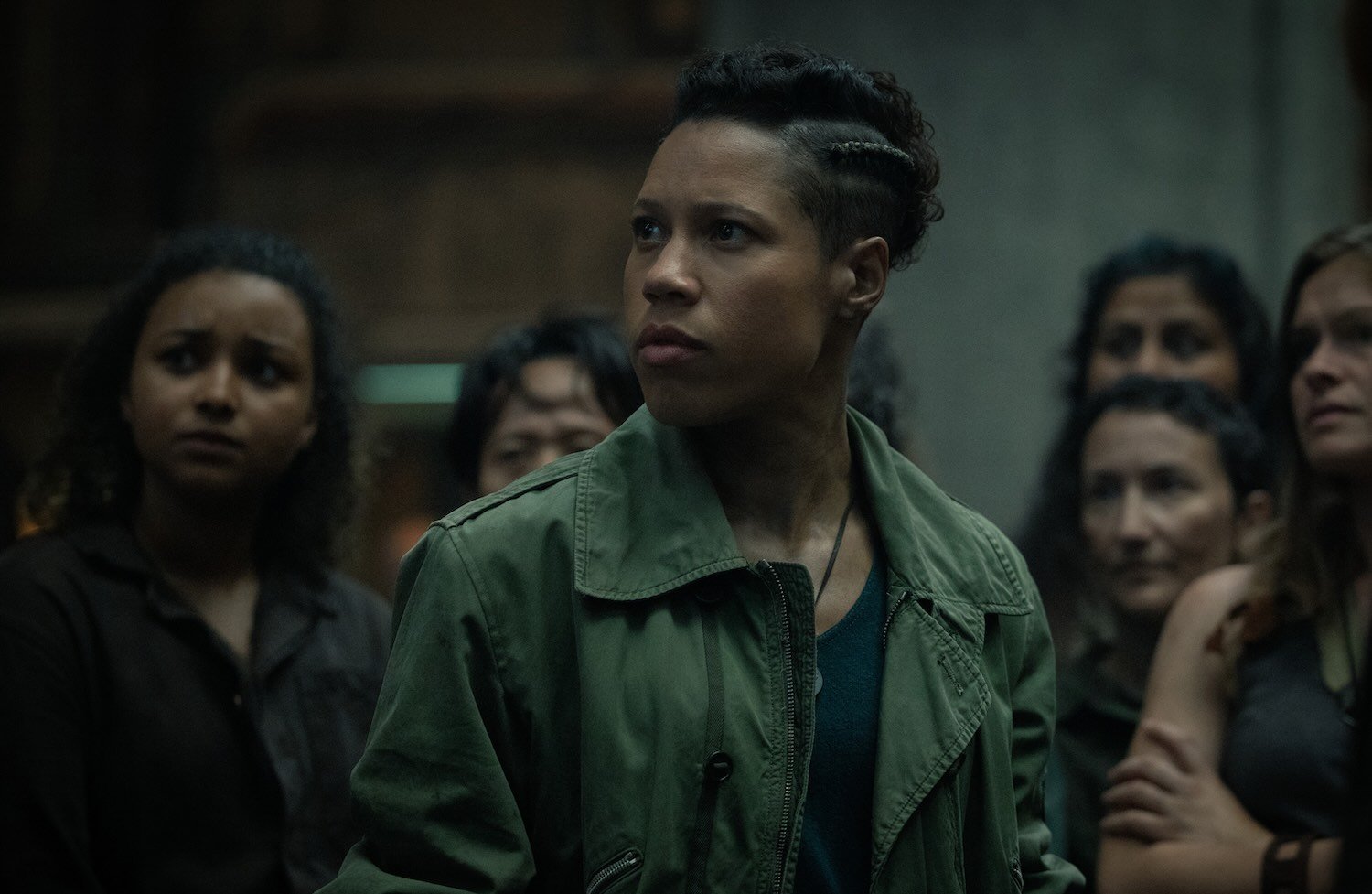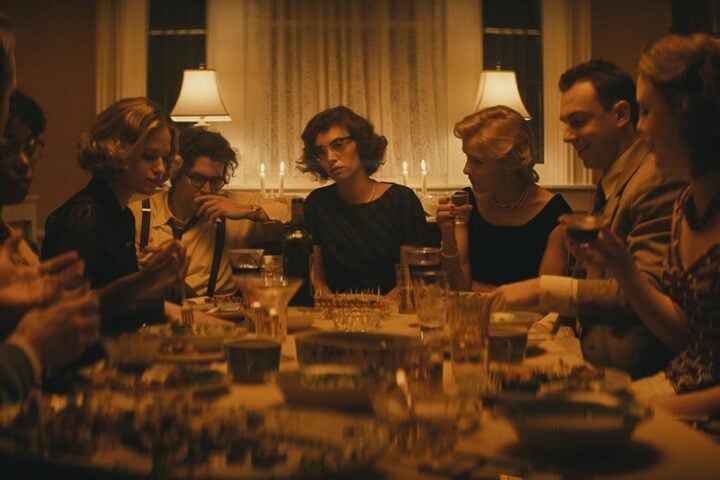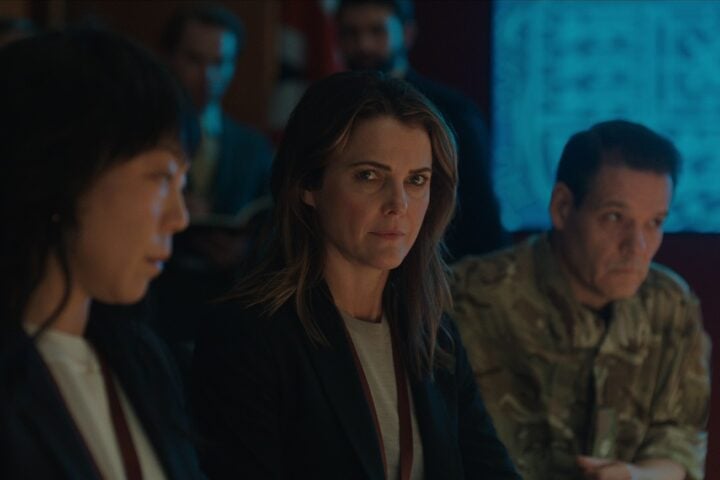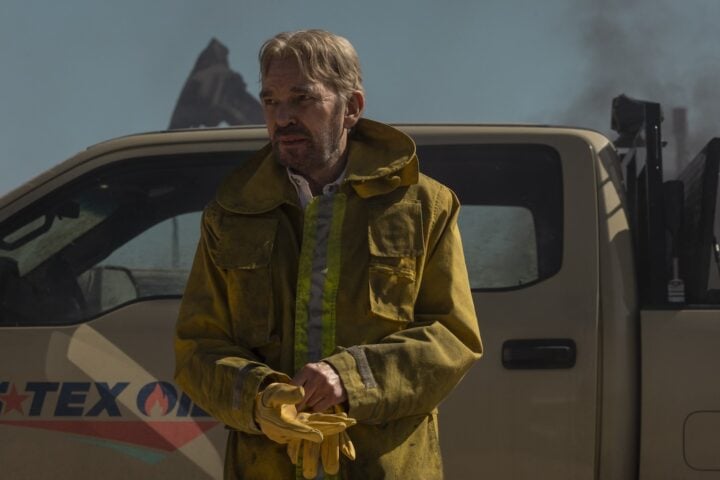At 10 protracted episodes, set inside a concrete structure reaching 144 levels underground to insulate thousands from the toxic world above, Silo’s first season was a fundamentally by-the-numbers dystopia. And in the wake of Amazon’s Fallout, it’s not even the only series on television that pivots on subterranean retrofuturism. In its sophomore season, though, Silo builds some momentum by broadening the scope of the shelter’s infighting.
Last season, engineer and ex-sheriff Juliette Nichols (Rebecca Ferguson) was exiled from the silo and, in full view of exterior camera feeds, didn’t die like so many others before her. Instead, she trudged out of sight into the wasteland beyond, becoming a symbol of rebellion for the downtrodden workers in the silo’s lowest Mechanical levels. The resulting powder keg invigorates the series, deemphasizing the overarching mystery in favor of dramatic irony—namely, that the hope that Juliette’s survival stokes is false.
The outside world is a poisonous ruin, and as Juliette travels to an adjacent silo, she has to cross an ocean of corpses. The truth that so many here became casualties of revolt adds a layer of complexity to the struggle of mayor Bernard Holland (Tim Robbins), a seething weasel of a man whose goal of suppressing rebellion may also avert a similar disaster. (Robbins allows Holland’s calm and calculating façade to crumble with, at turns, sadistic anger or a vulnerable longing.)
The best parts of the season have little to do with Juliette and instead center Mechanical workers like Shirley (Remmi Milner) and Knox (Shane McRae) as they mobilize the sector against Holland’s rule. The middle stretch of the season in particular is quite gripping as the conflict escalates and the workers must devise clever plans to escape retribution or acquire resources, making suspenseful use of the setting’s distinct verticality and central stairwell.
Though Silo finds more dynamic purpose for its previously peripheral characters, it doesn’t totally overcome its pacing issues. There’s intrigue in Juliette encountering the ruined and distant silo’s lone survivor, who calls himself “Solo” (Steve Zahn). But after a few too many episodes attempt to contrive new challenges that test Juliette’s mechanical know-how, her scenes start to feel repetitive, and her time in the other silo does little to explore whatever cultural differences might have once existed between it and the one she left behind.
The show’s writers struggle to conceptualize how people live in this world beyond a few tin-eared, declarative monologues about how Mechanical takes care of its own. Shirley and Knox may take center stage, but they remain thin sketches of human beings, mainly useful as a means of advancing plot beats. For as much as the shift in focus to a collective movement diminishes such deficiencies, these shortcomings are in full force whenever we follow a character like Juliette, who fails to hold interest when she’s no longer a direct participant in the action.
Since 2001, we've brought you uncompromising, candid takes on the world of film, music, television, video games, theater, and more. Independently owned and operated publications like Slant have been hit hard in recent years, but we’re committed to keeping our content free and accessible—meaning no paywalls or fees.
If you like what we do, please consider subscribing to our Patreon or making a donation.






